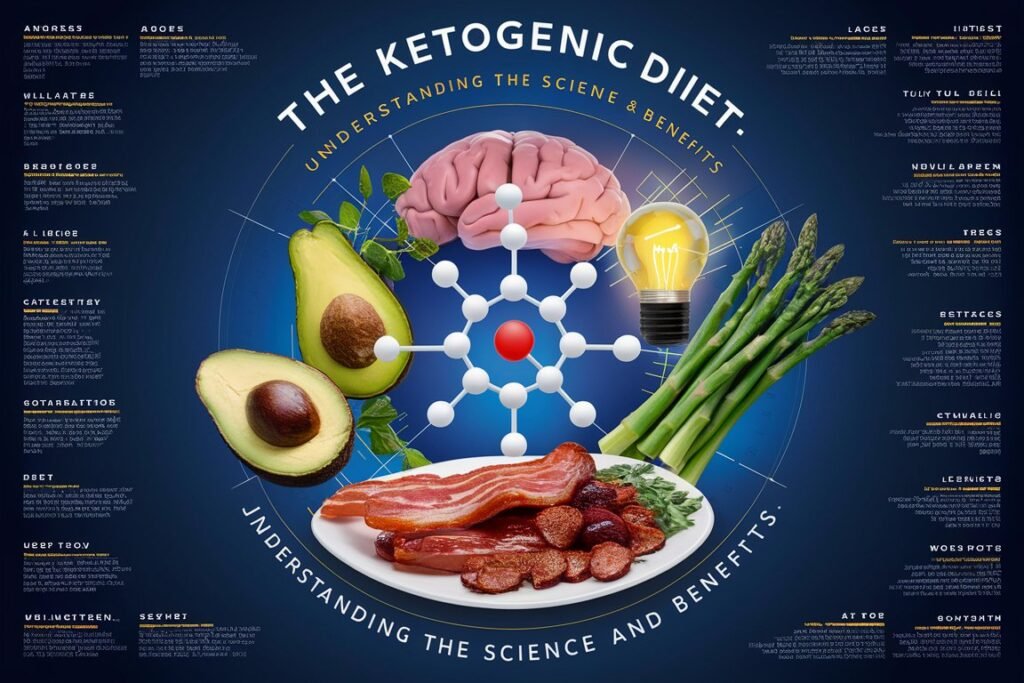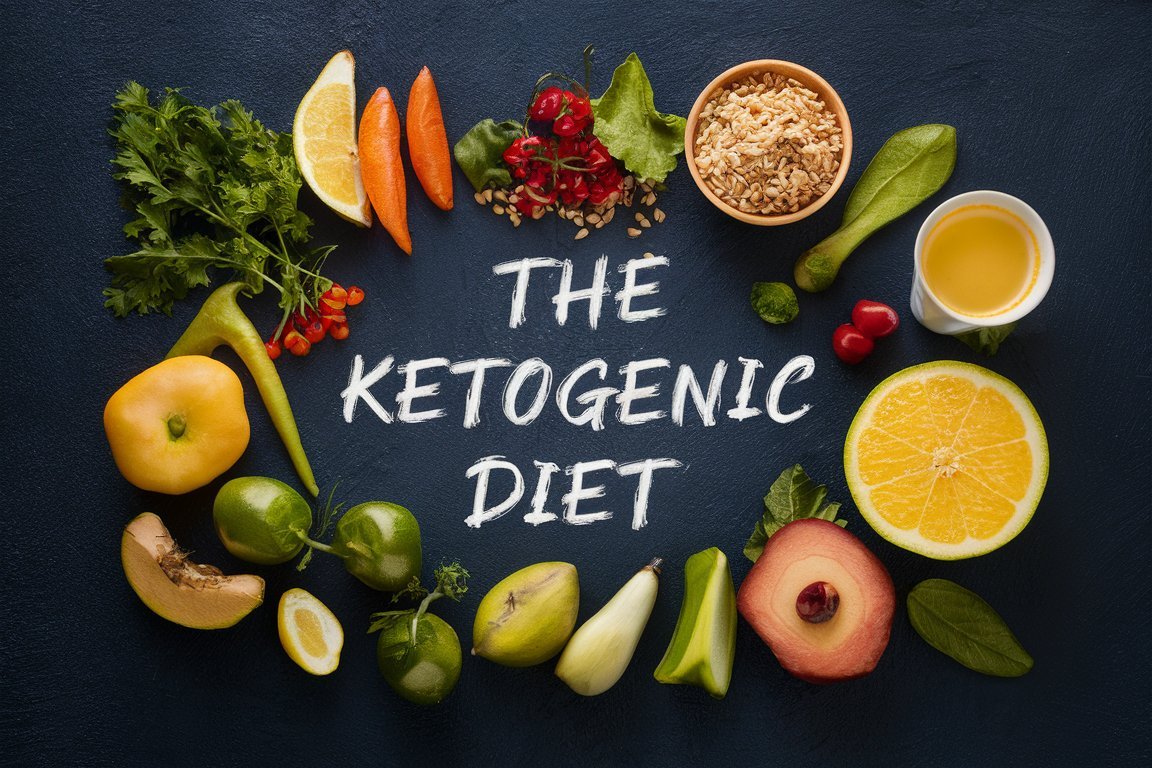The Ketogenic Diet: Understanding the Science and Benefits
Hey there, my curious and health-conscious friends of 2024! It’s your favorite nutrition explorer, Nita Sharda, here to take you on a fascinating journey into the world of the ketogenic diet. Now, I know what you might be thinking – “Diet? That sounds like something only grown-ups care about!” But trust me, learning about different ways of eating and how they can impact your health is super important, even at your young age.
Today, we’re going to dive into the science behind the ketogenic diet (or “keto” for short) and explore some of the potential benefits it may offer. But before we get started, let me make one thing clear – this is not about telling you that you need to go on a diet or change the way you eat. It’s simply about giving you the knowledge and tools to make informed decisions about your health and well-being, now and in the future.
So, are you ready to put on your scientist hat and explore the world of keto with me? Let’s go!
What is the Ketogenic Diet?
First things first, let’s define what we mean by the ketogenic diet. In simple terms, the keto diet is a way of eating that is very low in carbohydrates, moderate in protein, and high in fat. The goal of this way of eating is to get your body into a metabolic state called ketosis, where it starts burning fat for fuel instead of carbohydrates.
Now, I know that might sound a little confusing, so let’s break it down a bit more. Normally, when we eat foods that contain carbohydrates (like bread, pasta, fruits, and sugary treats), our bodies break those carbs down into glucose, which is then used for energy. But when we drastically reduce our carb intake and replace those calories with fat, our bodies have to find a new way to get energy.
That’s where ketosis comes in. When there isn’t enough glucose available, our livers start producing molecules called ketones, which can be used as an alternative fuel source for our brains and other organs. This process is what gives the keto diet its name – “ketogenic” means “producing ketones.”
So, what does a typical keto meal plan look like? It usually includes plenty of healthy fats like avocado, nuts, seeds, olive oil, and fatty fish; moderate amounts of protein from sources like eggs, meat, and tofu; and very few carbs, mostly from non-starchy vegetables like leafy greens, broccoli, and cauliflower. Some people also include small amounts of low-sugar fruits like berries, but in general, the keto diet is very low in carbs and high in fat.
The Science Behind Ketosis
Now that we know what the keto diet is, let’s talk a little bit about the science behind how it works. When we eat a typical high-carb diet, our bodies release a hormone called insulin to help shuttle glucose from our bloodstream into our cells for energy. But when we switch to a keto diet and drastically reduce our carb intake, our insulin levels drop, and our bodies have to find a new way to fuel themselves.
That’s where ketosis comes in. When our bodies don’t have enough glucose available for energy, they start breaking down stored fat into molecules called ketones, which can then be used as an alternative fuel source. This process is regulated by a complex interplay of hormones and enzymes, including insulin, glucagon, and lipoprotein lipase.
One of the key players in this process is a liver enzyme called hydroxymethylglutaryl-CoA synthase 2 (HMGCS2), which helps kickstart the production of ketones. As ketone levels rise in the bloodstream, they can cross the blood-brain barrier and provide energy for the brain, which normally relies on glucose for fuel.
Interestingly, some studies have suggested that being in a state of ketosis may have some unique benefits for the brain. For example, ketones have been shown to have anti-inflammatory and antioxidant effects, which may help protect brain cells from damage and improve cognitive function. Some research has also suggested that the keto diet may be beneficial for certain neurological conditions like epilepsy and Alzheimer’s disease, although more studies are needed to fully understand these potential effects.
Potential Benefits of the Keto Diet
So, what are some of the potential benefits of following a ketogenic diet? While the research is still ongoing and there is much we have yet to learn, some studies have suggested that the keto diet may offer some unique health advantages, including:
1. Weight Loss and Improved Body Composition
One of the most well-known potential benefits of the keto diet is its ability to promote weight loss and improve body composition. By drastically reducing carb intake and increasing fat intake, the keto diet may help reduce appetite, increase feelings of fullness, and boost fat burning, all of which can contribute to weight loss.
Some studies have also suggested that the keto diet may be particularly effective for reducing abdominal fat, which is a type of fat that is linked to an increased risk of heart disease and other chronic health problems. However, it’s important to note that the long-term effects of the keto diet on weight and body composition are still not fully understood, and more research is needed in this area.
2. Improved Blood Sugar Control and Insulin Sensitivity
Another potential benefit of the keto diet is its ability to improve blood sugar control and insulin sensitivity. When we eat a high-carb diet, our blood sugar levels can spike and then crash, leading to feelings of hunger, cravings, and fatigue. Over time, this pattern of blood sugar highs and lows can contribute to insulin resistance, a condition in which our bodies become less responsive to the effects of insulin.
By drastically reducing carb intake, the keto diet may help stabilize blood sugar levels and improve insulin sensitivity, which can be particularly beneficial for people with type 2 diabetes or prediabetes. Some studies have even suggested that the keto diet may be able to reverse type 2 diabetes in some cases, although more research is needed to confirm these findings.
3. Reduced Inflammation and Oxidative Stress
Inflammation and oxidative stress are two key drivers of chronic disease, and some research has suggested that the keto diet may help reduce both of these factors. Ketones, the molecules produced during ketosis, have been shown to have anti-inflammatory and antioxidant effects in the body, which may help protect against cellular damage and reduce the risk of chronic diseases like heart disease, cancer, and neurodegenerative disorders.
Some studies have also suggested that the keto diet may help reduce levels of certain inflammatory markers in the blood, such as C-reactive protein and interleukin-6. However, more research is needed to fully understand the potential anti-inflammatory effects of the keto diet and how they may impact long-term health outcomes.
4. Improved Brain Function and Neuroprotection
As I mentioned earlier, some research has suggested that being in a state of ketosis may have some unique benefits for the brain. Ketones have been shown to provide an alternative fuel source for the brain during periods of low glucose availability, which may help improve cognitive function and reduce the risk of neurological disorders.
In particular, some studies have suggested that the keto diet may be beneficial for people with epilepsy, as it has been shown to reduce seizure frequency and severity in some cases. There is also some preliminary evidence to suggest that the keto diet may be helpful for other neurological conditions like Alzheimer’s disease, Parkinson’s disease, and traumatic brain injury, although more research is needed in these areas.
Is the Keto Diet Right for Everyone?
While the potential benefits of the keto diet are certainly intriguing, it’s important to remember that this way of eating may not be right for everyone. The keto diet can be quite restrictive and may be difficult to stick with long-term, especially for kids and teens who are still growing and developing.
Additionally, the keto diet may not be appropriate for certain groups of people, including:
- Pregnant or breastfeeding women
- Children and teenagers (unless under medical supervision)
- People with certain medical conditions like liver or pancreatic disease
- People with a history of disordered eating or eating disorders

If you’re considering trying the keto diet, it’s important to talk to a qualified healthcare professional first to make sure it’s safe and appropriate for you. They can help you weigh the potential risks and benefits and develop a personalized plan that meets your unique needs and goals.
The Bottom Line
So, there you have it – a crash course in the science and potential benefits of the ketogenic diet! I hope this has given you a better understanding of how this way of eating works and some of the unique advantages it may offer for health and well-being.
But remember, my young friends – the most important thing is to find a way of eating that makes you feel your best, both physically and mentally. That might be the keto diet, or it might be something else entirely. The key is to stay curious, keep learning, and always listen to your body’s wisdom.













Leave a Reply